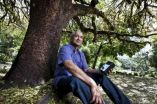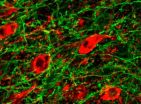Checks and balances for medical practitioners?
Study finds video capture and other automated systems cut down medical errors
2012-03-22
(Press-News.org) USC Marshall study finds video capture and other automated systems cut down medical errors and minimize the tendency to operate outside normal procedures.
The Conrad Murray case can obfuscate that the vast majority of grave medical errors happen in hospitals—the places we think are most safe—and are often the result of bad systems. Poor transmission of information and unmonitored interventions yield problems in operations, recovery rooms and regular wards. But how can we minimize interpretive and procedural errors that are the root cause of most medical mistakes?
Research by USC Marshall School of Business Dave and Jeanne Tappan Chair in Marketing Shantanu Dutta and colleagues at Johns Hopkins University, Texas A&M University and the University of Florida investigated two Asian hospitals to determine how investment in technology and automated systems (including video cameras, swipe cards to access samples, electronic dispensation, data recording as well as alarms and alerts to notify practitioners to conduct tasks) can substantially reduce medical errors. Their paper, "The Impact of Automation of Systems on Medical Errors: Evidence from Field Research," was published in Information Systems Research.
Why do mistakes happen and fail to be rectified? The paper's authors suggest the very structure of how physicians are compensated makes them less likely to spend time on process-level details.
In addition, Dutta and his colleagues suggest that clinical agents fail to admit that that they made "suboptimal efforts" that result in an error and attribute error to environmental factors outside their control.
But the question is, can electronic surveillance systems and other automated systems change individual behavior and the tendency of human nature to cover up a mistake? The study found that this tendency can be overcome with technology.
"Even if no one ends up monitoring video cameras, the very fact that they are there impacts patient care," Dutta said in an interview. He explained that automation systems, such as panoptic cameras that make an image 360 degrees, can change behavior, even if there is little monitoring.
Reducing the "repetitive human touch," it turns out, may be one of the best ways for those in a hospital to avoid human errors in getting the correct dosage amount of medicine or having blood work accurately tested.
In addition, workers who keep track of their jobs manually can hope that their work isn't observed or reviewed by managers, but increasing automation will lower the chance that their errors would go unnoticed.
Dutta points out, however, that automated systems only reduce the chance of errors so much. Procedural errors—such as not disinfecting an area—are easier to track. But interpretive errors, such as judgment calls, are a little trickier to monitor. Automation won't help improve those errors unless training is added, Dutta said.
To have the greatest impact on reducing interpretative errors, workers need to buy in to automation by having management explain the best ways to monitor their work and having training to help them with judgment calls, according to the study.
"Technology is not going to solve the problem unless practitioners are educated and have an appreciation of the role that technology has in enhancing the quality of their judgments and how it can improve the patient experience," Dutta said.
INFORMATION: END
ELSE PRESS RELEASES FROM THIS DATE:
2012-03-22
At some campuses, a fake driver's license is almost a standard accessory for college students. In a small sample of students at a branch of the State University of New York, more than three-fourths of students interviewed admitted that they carry false identification -- mainly to gain entry to bars and to buy alcohol.
When surveyed, many students admitted that it was challenging to convince bouncers that they are of legal age. Identification is carefully scrutinized, because bar owners do not want to jeopardize their state alcohol license by violating laws against underage ...
2012-03-22
Plants have long been known as the lungs of the earth, but a new finding has found they may also play a role in electrifying the atmosphere.
Scientists have long-suspected an association between trees and electricity but researchers from Queensland University of Technology (QUT), in Brisbane, Australia, think they may have finally discovered the link.
Dr Rohan Jayaratne and Dr Xuan Ling from QUT's International Laboratory for Air Quality and Health (ILAQH), led by Professor Lidia Morawska, ran experiments in six locations around Brisbane, including the Brisbane Forest ...
2012-03-22
Few people think about presidential pardons in racial terms. Even fewer people think about presidential pardons at all. But in a recent two-part article co-published by ProPublica and The Washington Post, an analysis of presidential pardon data seems to suggest that race may be a more important factor in presidential pardons than one might think.
Most presidential pardons go unnoticed; those that do not often leave the impression that the process is rife with political maneuvering and backroom favors. Criminals pardoned with presidential pardons are essentially returned ...
2012-03-22
ST. PAUL, Minn. – A new study suggests that older people may have an increased risk of problems with memory and thinking abilities after being in the hospital, according to research published in the March 21, 2012, online issue of Neurology®, the medical journal of the American Academy of Neurology.
"Our study is timely as the United States population continues to rapidly age and researchers try to identify factors that could reduce memory and thinking problems in the elderly," said study author Robert S. Wilson, PhD, of Rush University Medical Center in Chicago. "Understanding ...
2012-03-22
WASHINGTON — A new finding in basic science should trigger a "change in thinking" about how cancer drugs might be developed and tested for maximum effectiveness, says Louis M. Weiner, M.D., director of the Georgetown Lombardi Comprehensive Cancer Center, in a "Clinical Implications of Basic Research" article titled
Tumor-Cell Death, Autophagy, and Immunity published in the March 22 issue of the New England Journal of Medicine (NEJM).
An internationally known expert in immunotherapy research, Weiner was invited, along with Michael T. Lotze, M.D. from the University of ...
2012-03-22
A Carbondale woman, who charged a Carbondale police officer with unlawfully using his police cruiser to ram the all terrain vehicle (ATV) in which she was riding, has settled her Federal Civil Rights lawsuit against the officer and the City of Carbondale for $105,000.
In May 2009, Chelsea Rocuba, 17 years-old at the time, was a passenger in a legally registered and operated ATV when it was rammed by Carbondale Police Officer Timothy Mackrell using a "pit maneuver," a move commonly used by police forces. The pit maneuver involves the law enforcement vehicle ...
2012-03-22
Two breakthrough studies may explain why we see distinct patterns of brain damage associated with dementias, such as Alzheimer's disease, and could be useful for predicting future cognitive decline in patients. These independent studies published by Cell Press in the March 22 issue of the journal Neuron, one studying how brain circuits wire up structurally and the other studying their functional connections, converged on a remarkably similar model that predicted the landscape of degeneration in various forms of dementia. This is particularly significant because, until now, ...
2012-03-22
CHAPEL HILL, N.C. – What characterizes many people with depression, schizophrenia and some other mental illnesses is anhedonia: an inability to gain pleasure from normally pleasurable experiences.
Exactly why this happens is unclear. But new research led by neuroscientists at the University of North Carolina at Chapel Hill School of Medicine may have literally shined a light on the answer, one that could lead to the discovery of new mental health therapies. A report of the study appears March 22 in the journal Neuron.
The study used a combination of genetic engineering ...
2012-03-22
In a medical malpractice case, an Ontario appeals court recently affirmed a lower court's award of $8.5 million to the family of a severely brain-damaged woman. Born with cerebral palsy, the woman nearly died at birth due to a nurse's failure to properly monitor her heartbeat during labor. Lawyers for the family said that the nurse didn't measure her heartbeat often enough to detect oxygen deprivation over a period of one to three hours.
The woman, now grown, lives in an assisted care facility and depends on her family for care and financial support. Family members said ...
2012-03-22
STANFORD, Calif. — Investigators at the Stanford University School of Medicine have shown that removing a matched set of molecules that typically help to regulate the brain's capacity for forming and eliminating connections between nerve cells could substantially aid recovery from stroke even days after the event. In experiments with mice, the scientists demonstrated that when these molecules are not present, the mice's ability to recover from induced strokes improved significantly.
Importantly, these beneficial effects grew over the course of a full week post-stroke, ...
LAST 30 PRESS RELEASES:
[Press-News.org] Checks and balances for medical practitioners?
Study finds video capture and other automated systems cut down medical errors

